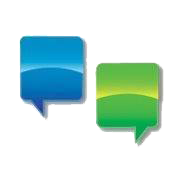Europe is home to several languages, including some of the widely spoken languages in the world. But what languages dominate this diverse region? We tell you about some of them.
Europe could be a tricky thing to define. According to the Greek Legend, Europa was the beautiful princess abducted by Zeus and taken to the island of Crete. Geographically, it is typically defined as the landmass stretching from the Atlantic Ocean to the Caucasus Mountains in Russia. Having an area of merely 4 million square miles, this is the second smallest continent on Earth. It consists of 44 sovereign nations, 748 million inhabitants, and one of the most influential political institutions in the world: the European Union. Some of the most spoken languages in Europe are also amongst the most widely spoken in the world. And let us not forget that “Europe” is also a stand-in for specific cultural attitudes and liberal democracy. So all of those descriptors are what we mean when we talk about Europe.
But what do people speak in Europe? Amazingly, there are more than 200 different languages spoken throughout this continent. The majority of these languages have evolved from the Indo-European family language tree.
Having all of these languages and cultures existing inside quite a small geographic expanse, Europe is a wonderful and unique place to visit. Yet when it comes to deciding which particular language to learn for your vacation, it actually would be a difficult decision. Here are some of the languages that are widely spoken.
Russian
Perhaps a surprise for several individuals, Russian tops the list as the most spoken language in Europe with approximately 221 million speakers on the continent. This is especially, interesting because while most languages in Europe use the Latin alphabet, while Russian uses the Cyrillic alphabet instead. This could be a tricky challenge for would-be Russian learners, but it does not hinder the millions of people who claim it as their mother tongue. It is the official language of Russia and Belarus, but it is also still greatly used in several eastern European countries (where it was taught in school amidst the Soviet Era). For those looking to visit Russia, having some knowledge of the language is recommended, as only about 5% of Russians can speak English.
German
Regarded as the language of philosophers and thinkers, German falls second for the largest native-speaking population in Europe. It is the sole official language of Germany, Austria, and Liechtenstein, and it is also a co-official language in Switzerland, Belgium, and Luxembourg. With all those countries combined, approximately 95 to 100 million people in Europe speak German as their first language. And it is also a fact that you may not know is that German is the most widely-understood language behind English? This is due to its popularity as a second, third, or fourth language in Denmark, the Netherlands, Slovenia, Finland, Sweden, Poland, Hungary, and several other European countries. Why not learn this language then?
French
Next on this list of most spoken languages in Europe is French, with close to 80 million native speakers. It is the official language of France, along with the co-official language of Belgium, Switzerland, and Luxembourg. If you take the percentage of the population that learned French as a second language, then more than 30% of European natives know the language, making it a top choice for those who wish to travel around the continent. That said, French’s global reach is even more impressive than its usefulness in Europe alone as around 30 countries claim French as an official or administrative language.
Italian
The 64 million Italian native speakers in Europe are experts on la dolce vita. Italian is naturally the official language of Italy, but it is also a co-official language of Switzerland and it is the third most spoken language by the Swiss, behind German and French, and of Vatican City, the city-state for the Roman Catholic Church. When you wish to experience the authentic Italian method of life on your travels, then learning Italian is a necessity.
English
It was always there, right? English, the global language, has 1.35 billion speakers worldwide, with 13% of the population in Europe. It is the de facto (but not “official”) language of the U: and the Republic of Ireland, but the large number of English-speaking ex-pats living in Europe also adds to this number. As for second language speakers, about one-third of older Europeans can speak English, while around half of 15- to 35-year-olds have a mastery of the language.
Spanish
For many years now, Spain has enjoyed a covetable position as one of Europe’s best travel destinations particularly for other Europeans who are looking for a warm and relaxing summer vacation. That, besides the fact that 46 million Europeans claim Spanish as the mother tongue, is reason enough to begin learning this language. (One fact is Spanish is one of the easiest languages for English speakers to learn?). Spanish’s pride grows even more when leaving Europe: 20 countries have Spanish declared it as an official language and over 500 million individuals are native speakers throughout the world, making it the second most widely spoken native language in the world.
Dutch
The last position in this list goes to Dutch. Dutch is the official language of the Netherlands but also commands respect as the co-official status in Belgium. In total, 25 million Europeans speak Dutch as their mother tongue. While this might seem like a small number, this language is pretty simple to pick up for native English speakers, particularly, compared to the other Germanic languages! Why not add it to your list for your next trip to Holland.

